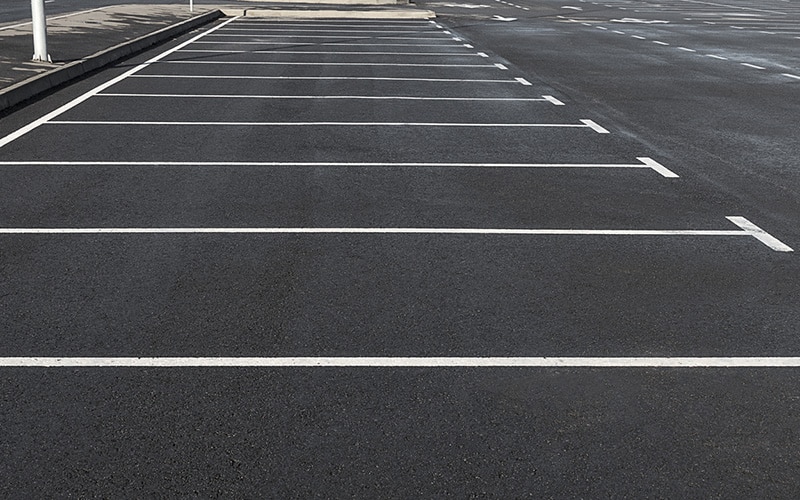Renew Angle Parking Lots: Asphalt Sealing Approaches Disclosed
Cold Mix Asphalt Vs. Hot Mix Asphalt: Which Is Right for You?

Make-up Distinctions
Cold mix and hot mix asphalts vary considerably in their structure, with distinct features that influence their performance and applications. Cold mix asphalt is produced by emulsifying the asphalt binder with water and an emulsifying agent before blending it with accumulation. This approach permits the asphalt to be convenient at lower temperature levels, making it excellent for temporary fixings and for usage in cooler weather problems. Hot mix asphalt, on the other hand, is made at high temperatures, normally in between 300-350 ° F, which aids to achieve much better compaction and an extra resilient final item. The hot mix asphalt manufacturing procedure entails heating up the accumulation and asphalt binder independently before integrating them at the asphalt plant.
Furthermore, chilly mix asphalt tends to be less dense and much more versatile than warm mix asphalt. This versatility makes it far better matched for areas with greater levels of activity, such as driveways or roadways with rush hour. On the other hand, warm mix asphalt is known for its high durability and resistance to rutting and fracturing, making it a preferred option for highways and high-traffic roads where durability is vital.
Setup Refine Variations
The procedure of mounting cold mix and hot mix asphalt shows notable variations in their treatments and needs. In comparison, warm mix asphalt necessitates a more elaborate setup procedure. Due to the home heating needs, hot mix asphalt setups are typically brought out by experts with customized equipment, ensuring an extra structurally sound and long-term outcome.
Durability and Durability Variables
When taking into consideration asphalt options, sturdiness and long life are crucial elements to assess for long lasting sidewalk performance. Warm mix asphalt (HMA) is recognized for its exceptional resilience and longevity. The heats during the laying and mixing process enable better compaction, causing a denser and stronger sidewalk framework. This leads to HMA being more immune to hefty web traffic lots, rough climate problems, and the effects find more old compared to cold mix asphalt (CMA)
In regards to long life, HMA normally exceeds CMA due to its exceptional toughness and resistance properties. HMA sidewalks have a longer life span, needing less constant repair services and maintenance, which can equate to set you back savings over time. Furthermore, HMA sidewalks are much more conveniently customizable to meet certain task needs, even more boosting their sturdiness.
Price Factors To Consider
Taking into consideration the monetary ramifications is a critical facet when evaluating the choice in between warm mix asphalt (HMA) and cool mix asphalt (CMA) for sidewalk jobs. While the preliminary cost of hot mix asphalt is generally higher than that of cold mix asphalt, HMA often supplies an extra economical option in the long run due to its premium sturdiness and durability.
Along with product prices, it's important to take into consideration the expenses associated with installment and upkeep when comparing HMA and CMA. HMA usually calls for specific equipment and proficient labor for correct setup, which can impact total job expenses. On the other hand, CMA is simpler to collaborate with and can usually be used making use of less complex methods, possibly reducing installation costs. Ultimately, the choice in between HMA and CMA should think about not simply the first cost yet also the lasting monetary implications to establish the most cost-efficient choice for the details pavement job.
Environmental Influence Comparison
Contrast of the ecological impacts between hot mix asphalt (HMA) and chilly mix asphalt (CMA) discloses distinct differences in sustainability methods. HMA manufacturing needs high temperature levels, resulting in enhanced energy intake and greenhouse gas emissions. The process likewise launches unstable natural substances (VOCs) and hazardous air pollutants (HAPs) into the atmosphere. On the other hand, CMA is generated and used at reduced temperature levels, Homepage minimizing power usage and emissions considerably. The lower manufacturing temperatures of CMA lead to reduced fuel usage and lower levels of CO2 emissions, making it a more environmentally friendly option.
Furthermore, the use of CMA typically involves recycling existing asphalt sidewalk, advertising resource conservation and minimizing the quantity of waste sent to landfills. This reusing facet even more enhances the sustainability of CMA compared to HMA. On the whole, when taking into consideration the ecological effect, CMA becomes an extra ecologically sustainable option because of its lower power demands, decreased emissions, and the possibility for reusing existing materials. By choosing CMA over HMA, roadway building jobs can add favorably to environmental preservation efforts.
Final Thought
Finally, the choice between chilly mix asphalt (CMA) and warm mix asphalt (HMA) depends upon various aspects such as composition, setup procedure, resilience, longevity, price, and environmental effect. asphalt patch repair. While CMA uses a fast and my latest blog post affordable remedy for minor repair services, HMA makes certain exceptional toughness and durability for rush hour areas. Take into consideration these variables very carefully to identify which sort of asphalt is the ideal selection for your paving requires

Taking into consideration the financial ramifications is an important aspect when examining the selection between hot mix asphalt (HMA) and cold mix asphalt (CMA) for pavement jobs. While the initial expense of hot mix asphalt is commonly greater than that of cool mix asphalt, HMA frequently provides a much more cost-efficient option in the long run due to its premium longevity and durability. cold mix asphalt.Comparison of the ecological influences between hot mix asphalt (HMA) and cold mix asphalt (CMA) exposes unique differences in sustainability methods.In final thought, the option between cold mix asphalt (CMA) and warm mix asphalt (HMA) depends on different variables such as structure, setup procedure, toughness, longevity, cost, and environmental effect